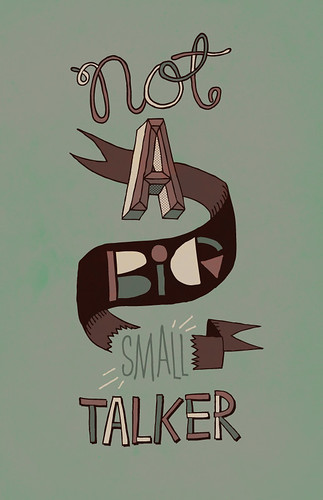This Is The Quickest Way To Become An Expert Negotiator
nice. We often associate negotiation with being tough or manipulative. While there are certainly situations where that's the case, a great deal of the recent research says we can improve our results by thinking more about making friends than waging war. A great deal of what it takes to influence others, gain their compliance and lead successful negotiations is just good advice on how to be a decent person. Be warm. We value warmth more than competence. Happy people…
2 minutes
Here’s How What You Wear Affects How You Act
s. This study shows that while wearing clothes you associate with certain qualities, you will tend to embody those traits. Lab coats are associated with attentiveness and carefulness. When people wore lab coats their scores on measures of both traits went up. We introduce the term “enclothed cognition” to describe the systematic influence that clothes have on the wearer's psychological processes. Providing a potentially unifying framework to integrate past findings and capture the diverse impact that clothes can have on…
2 minutes
Does small talk make a big difference?
king face-to-face small talk before a negotiation dramatically increases the chance of a fair offer and that a deal will be made. Via Secrets of the Moneylab: How Behavioral Economics Can Improve Your Business: In one experiment, Roth used the standard Ultimatum Game as a benchmark and compared those results with two variations. In the first, participants could talk face-to-face about anything, including how to divide the pie. In the second, they were allowed to talk face-to-face, but not about…
2 minutes
Is a touch on the arm all it takes to make you persuasive?
light touch on the arm dramatically increases compliance with all manner of requests, from asking for money to getting a woman's phone number. Via Richard Wiseman's excellent book 59 Seconds: Change Your Life in Under a Minute: A large number of studies has shown that touching someone the upper arm for just a second or two can have a surprisingly significant effect on how much help they then provide. In one experiment American researchers approached people in the street and…
1 min read
Is complaining about others a good way to make friends?
s. Sharing negative feelings about a third party can increase closeness between two people: We propose that sharing a negative—as compared to a positive—attitude about a third party is particularly effective in promoting closeness between people. Findings from two survey studies and an experiment support this idea. In Studies 1 and 2, participants’ open-ended responses revealed a tendency to recall sharing with their closest friends more negative than positive attitudes about other people. Study 3 established that discovering a shared…
1 min read
What should you do when you’re caught red-handed?
ile. The authors investigated the social significance of human smiles, specifically the penchant for transgressors who smile to be judged more leniently than those who do not. Of particular interest was whether different types of smiles generate different degrees of leniency and what mediated the effect. Subjects judged a case of possible academic misconduct. Materials included a photograph of a female target displaying a neutral expression, felt smile, false smile, or miserable smile. Smiling targets received more leniency than nonsmiling…
1 min read
Does too much computer time degrade social skills?
o much time at the keyboard and not enough time with people may reduce the ability to read nonverbal signals, to judge the intent of others and influence them: Via Harvard Business Review: Today's young digital natives may be ill-suited for jobs in high-trust fields such as diplomacy and sales, because prolonged exposure to computers is reconfiguring their neural networks and possibly diminishing their empathy and social skills, says John K. Mullen of Gonzaga University. With 55% of person-to-person communication…
1 min read
Do people like us better when we’re distracted?
ems like it. It's not that being distracted isn't off-putting, but when distracted we're less negative, less complex and more personal in our speech. We also encourage the other person to talk more. From James Pennebaker's book The Secret Life of Pronouns: What Our Words Say About Us: ...distracted pairs actually showed slightly higher style matching than the non-distracted pair. Even odder, they tended to report liking each other more. In terms of actual word use, the distracted students were…
2 minutes








